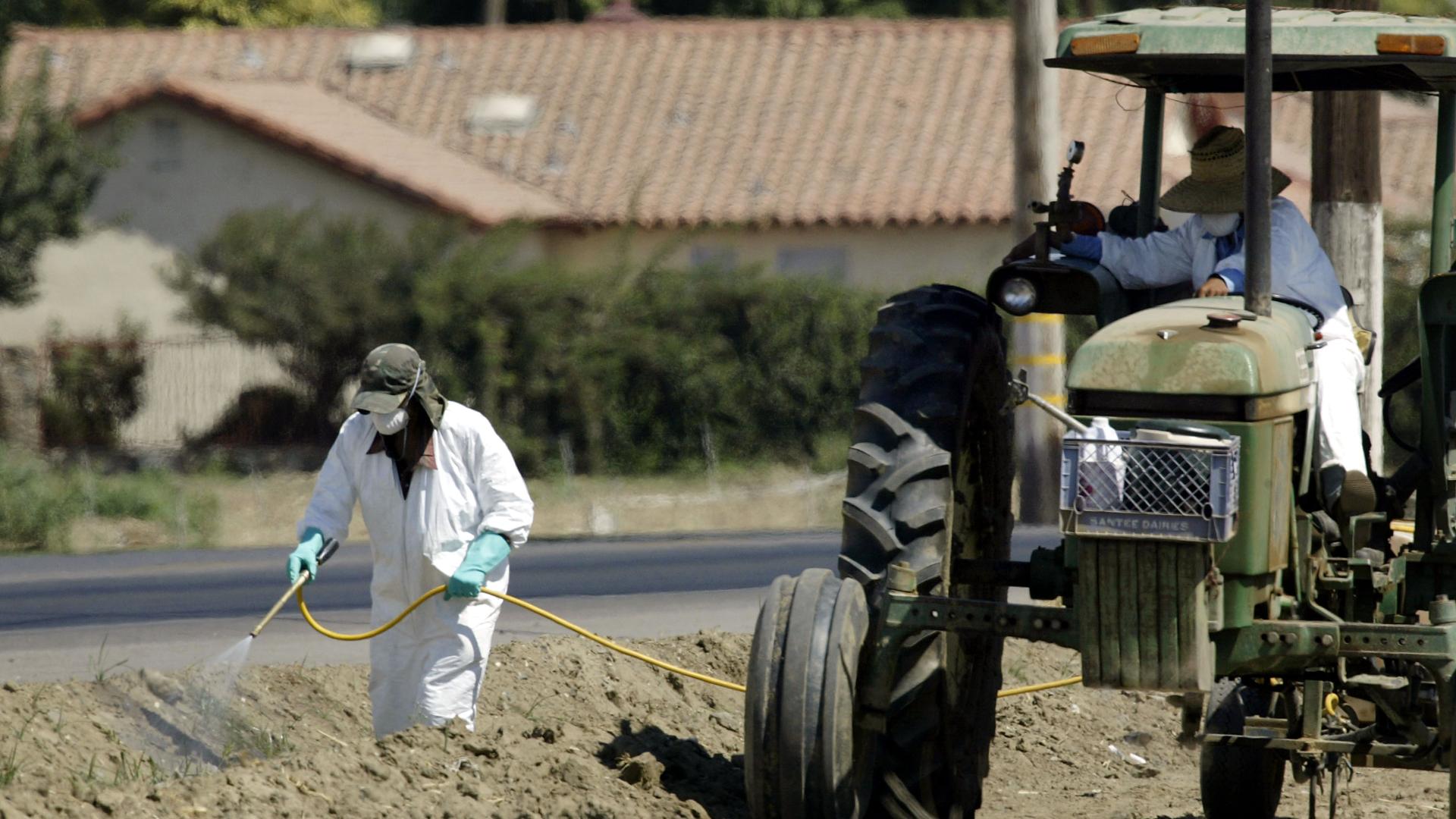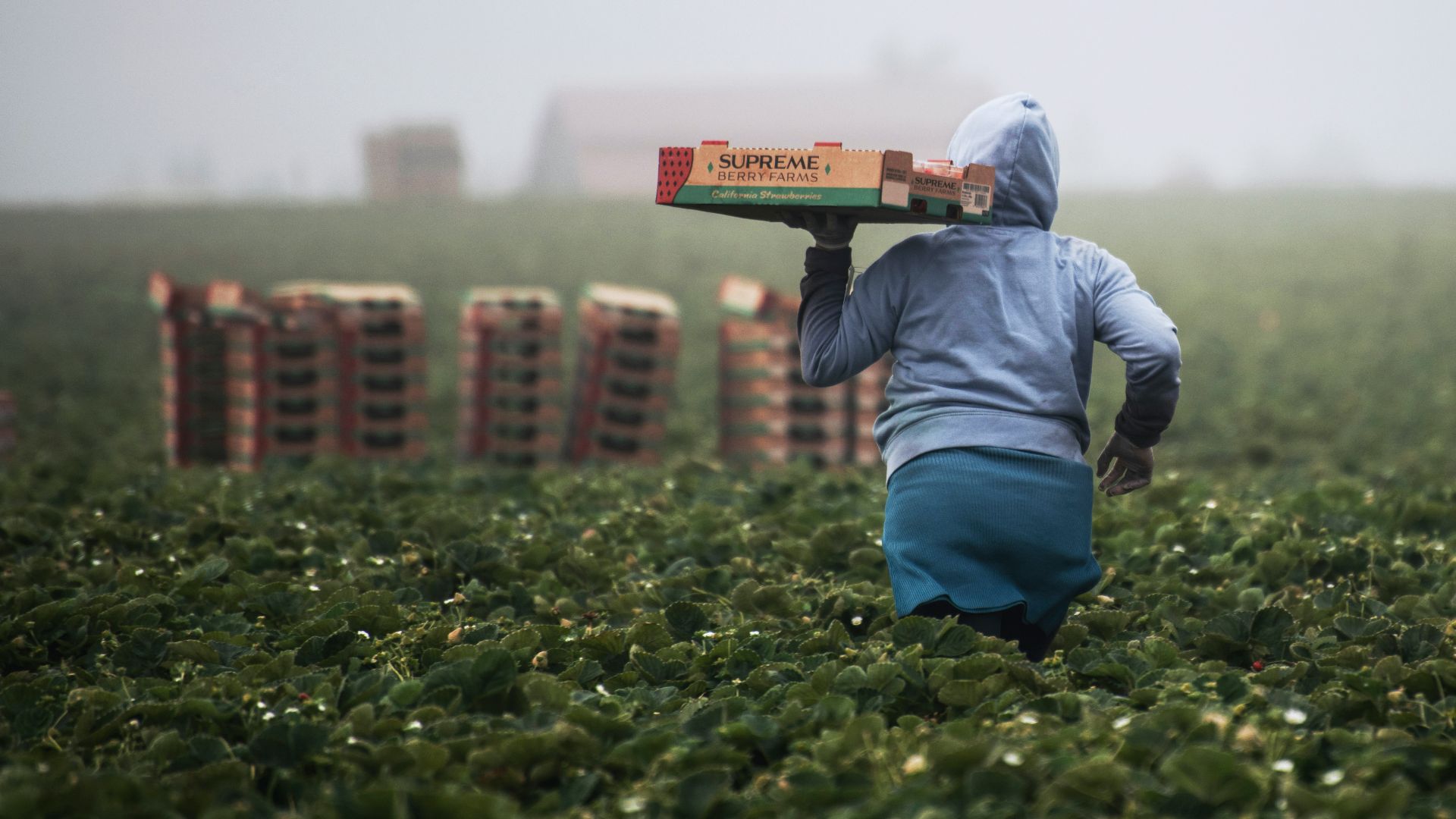The US Environmental Protection Agency (EPA) has declared a rare emergency order in response to a dangerous pesticide that research shows is linked to serious health risks for fetuses.
This emergency order issued Tuesday is the first such action in 40 years of the agency’s operations, and for this reason some are seeing it as historic.
Emergency Order

The EPA order issued on August 6 sought to implement an “emergency suspension” of a pesticide known as DCPA or Dacthal using its authority under the Federal Insecticide, Fungicide and Rodenticide Act (FIFRA).
“This is the first time in almost 40 years EPA has taken this type of emergency action, following several years of unprecedented efforts by the Biden-Harris Administration to require the submission of long-overdue data and then assess and address the risk this pesticide poses,” said an EPA press release.
EPA Rationale

In their press release, the EPA outlined the motivation for the sudden pesticide suspension, citing research evidence that showed the risk to unborn children.
“EPA has taken this action because unborn babies whose pregnant mothers are exposed to DCPA, sometimes without even knowing the exposure has occurred, could experience changes to fetal thyroid hormone levels, and these changes are generally linked to low birth weight, impaired brain development, decreased IQ, and impaired motor skills later in life, some of which may be irreversible,” the statement said.
Removed From the Market

Michal Freedhof, the assistant administrator for the Office of Chemical Safety and Pollution Prevention, expressed the urgency that the pesticide needs to be taken off the market.
“DCPA is so dangerous that it needs to be removed from the market immediately,” Freedhof said. “It’s EPA’s job to protect people from exposure to dangerous chemicals. In this case, pregnant women who may never even know they were exposed could give birth to babies that experience irreversible lifelong health problems.
Worried for Farmworkers

Congressman Raúl Grijalva of Arizona released a statement supporting the chemical suspension, noting the concern of farm workers who have been exposed.
“Farmworkers face burdensome conditions in the fields and often face exposure to harmful pesticides while working to feed our nation,” said Grijalva. “I applaud the emergency action by the EPA which prioritizes farmworker health and safety, especially for pregnant women, by suspending this harmful chemical from our agricultural systems. We must continue to build on this progress and ensure all farmworkers are given the protection, worker’s rights, and overtime pay they deserve.”
Farmworker Women

Mily Treviño Sauceda, Executive Director of Alianza Nacional de Campesinas, also known as the National Farmworkers Women’s Alliance, also applauded the historic action.
“Alianza is pleased to see the EPA make this historic decision. As an organization led by farmworker women, we know intimately the harm that pesticides, including dimethyl tetrachloroterephthalate (DCPA or Dacthal), can inflict on our bodies and communities,” Sauceda said.
What is DCPA?

DCPA, also known as dimethyl tetrachloroterephthalate is an acid commonly used for herbicide/pesticide control in products like turf, strawberries, kale, cotton, soybeans, cole crops, and field beans.
This chemical was previously banned by the European Union in 2009 over concern for its health risks, causing public health activists in the US to be frustrated with the EPA’s slowness in comparison.
Taking Too Long

Jeannie Economos, coordinator of the pesticide safety and environmental health program at the Farmworker Association of Florida, has criticized the order for being too late for farm workers who have been exposed to DCPA for decades.
“It shouldn’t have taken this long, but we are glad that they did it finally,” Economos said. “How many people got sick in the meantime? How many babies were born with low birth weight? We don’t know.”
Better Late Than Ever

Environmental Working Group (EWG) Senior Toxicologist Alexis Temkin also expressed disappointment in the delay of the order, but ultimately applauded the decision.
“The EPA’s decision to finally suspend DCPA is welcome news, but it’s long overdue,” wrote Temkin. “Countless people have been exposed to DCPA while the EPA abdicated its responsibility. The agency should have taken action decades ago, when it first identified the human health risks posed by this toxic crop chemical.”
Prolonged Battle

This decision from the EPA comes as the agency has previously battled the sole producer of DCPA, the AMVAC Chemical Corp. Earlier this year, AMVAC pled guilty to illegal RCRA transportation after reformulating a separate pesticide whose reformulation was not authorized by the EPA.
According to the EPA, the decision to finally ban DCPA came on the back of a review that happens every 15 years examining the health effects and environmental impacts of these pesticides.
Voluntary Actions

Earlier this year, AMVAC voluntarily attempted to pull all their DCPA products used on turf to reduce the risk to workers and athletes using the field, but the EPA ultimately decided that this voluntary step wasn’t enough to protect all workers.
“AMVAC’s risk mitigation proposal does not eliminate risk concerns for pesticide handlers (who apply or support application of pesticides) and post-application workers (who enter treated fields to perform standard activities, such as scouting for pests or weeding). Under AMVAC’s proposal, risks of concern would remain for handlers and farmworkers tending cole crops like broccoli, and radishes and specialty onions,” said a March letter from the EPA to AMVAC.
Concern Over the Future of EPA

Some online commenters reacting to the story worried about proposals to eliminate the EPA, and its ability to enforce its order given a recent Supreme Court ruling overturning Chevron deference.
“Keep in mind GOP Project 2025 would ELIMINATE THE EPA….and this deadly chemical would be free to go into your drinking water, plants, lawn, anywhere and everywhere they could sell it no matter how many people died,” said a Reddit user.
“It’ll be really interesting (and horribly [awful]) to watch SCOTUS rule the EPA doesn’t have the power to do this,” another user said.
